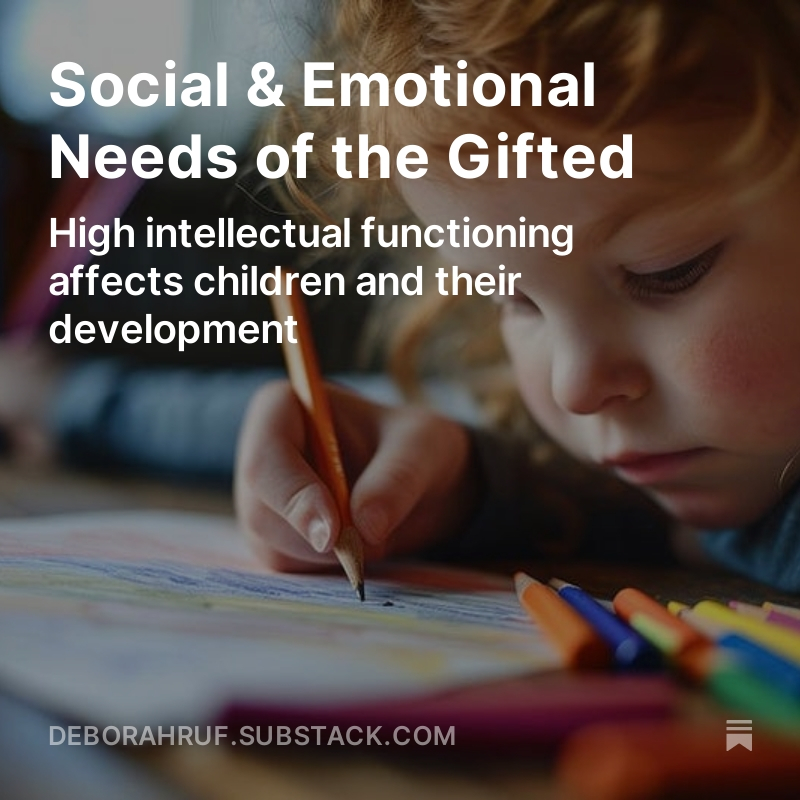
High intellectual functioning affects children and their development
Basic needs do not vary from one individual to another; the ways to meet those needs, however, varies from one person to another. All of us need love and acceptance and a sense of purpose and fulfillment. It is my goal to help people understand how high intellectual functioning affects children and their development. And, when not given what they need when they are young, gifted children, I believe, become gifted adults, people who often carry their wounded selves into their adult roles. I believe that once parents, teachers, and others who have influences over children’s lives know what these bright children need in order to flourish and become emotionally healthy, fulfilled, productive adults, they will gladly give it.
Any differences we have from those around us affect their perception of us. In our times of political-correctness we are loath to imply that intellectual giftedness is the same as intellectual superiority. We use terms including “able learners,” “academically advanced,” “bright,” and so on. The term “gifted” implies that the person thus “blessed” was given special intellectual tools. A burden is placed on the “advantaged one” that one must earn the gift through hard work, accomplishment, and good attitude. Many people view high intelligence with a mixture of fear, interest, admiration, resentment, contempt, suspicion, and appreciation. Most of us are familiar with the sometimes rather delighted observation (people can sometimes be happy to see someone else fail), “Even though he was really smart as a kid, he hasn’t amounted to anything.”
Become a paid subscriber to read the full post – and to support the person behind the words and insights. Your contribution allows me to dive deeper, dedicate more time, and create content that truly matters to our gifted community. Subscribe – even for free – and never miss a post again!
Leave a Reply